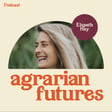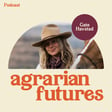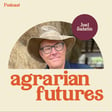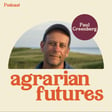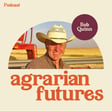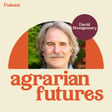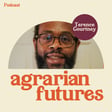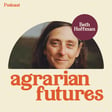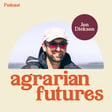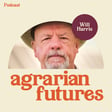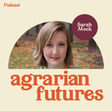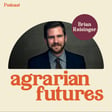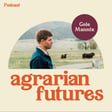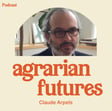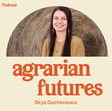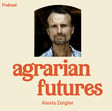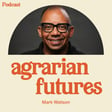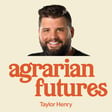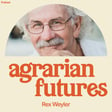
The Case Against Techno-Fixes with Chris Smaje
In the face of climate change and biodiversity loss, the solutions we hear the most are technological ones - many of which mirror the economic and philosophical approaches that precipitated these crises in the first place. But what if that vision is flawed? Chris Smaje, author of Saying NO to a Farm-Free Future, challenges the dominant eco-modernist philosophy head-on. He critiques its reliance on techno-fixes—not just on technological grounds, but also economic, political, and spiritual ones.
In this episode, Chris shares an alternative vision: a localist, agro-ecological approach to modern agriculture, rooted in self-provisioning for our basic needs and leveraging natural cycles instead of hyper-technological systems. It’s a vision that reconnects us to the land, promotes food sovereignty, and rethinks what a feasible and fulfilling future could look like.
In this episode, we dive into:
- Why he wrote Saying NO to a Farm-Free Future, inspired by a critique of prominent environmental and agricultural thinker George Monbiot.
- What our environmental crises reveal about the deeper flaws in our econmic systems.
- How industrial agriculture’s obsession with efficiency undermines ecological and social resilience.
- The ecological work of animals and why they’re vital to sustainable farming systems.
- The drive toward urbanism and the assumptions—often misguided—about its benefits for the planet.
- Reimagining quality of life beyond financial measures.
- And much more…
More about Chris:
Chris Smaje helps run a small farm in Somerset, England and has worked as a commercial vegetable grower and an academic social scientist. He’s recently published two books, A Small Farm Future (2020) and Saying NO to a Farm-Free Future (2023). He’s currently at work on a third – Lights for a Dark Age – all published by Chelsea Green.
Agrarian Futures is produced by Alexandre Miller, who also wrote our theme song. This episode was edited by Drew O’Doherty.
